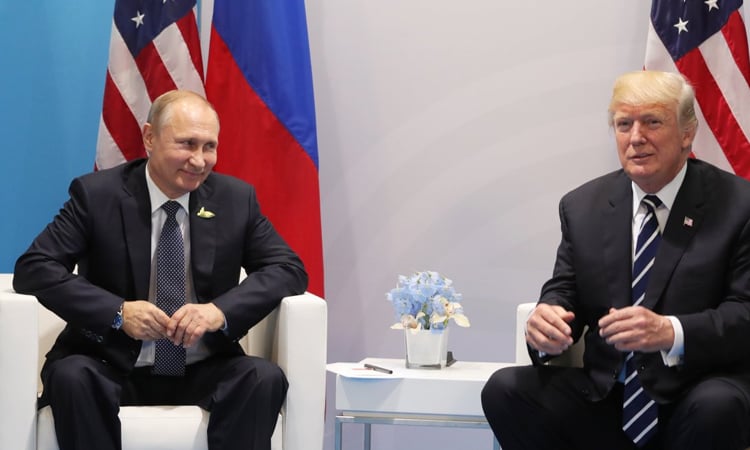News Flash
News Flash

PARIS, Aug 9, 2025 (BSS/AFP) - With US President Donald Trump and his Russian counterpart Vladimir Putin set to meet next Friday in Alaska against the backdrop of the war in Ukraine, we look back at previous historic encounters between the two nuclear powers:
- 1959: Eisenhower and Khrushchev -
Dwight Eisenhower and Nikita Khrushchev met at Camp David in September 1959 in what was the first visit by a Soviet leader to the United States.
In Hollywood, Khrushchev delivered one of his legendary rants to an audience that included Marilyn Monroe and Elizabeth Taylor.
The summit concluded with a statement that the two superpowers work towards talks on disarmament and on the status of Berlin, which the Cold War had divided.
- 1961: Kennedy and Khrushchev -
President John F. Kennedy met with Khrushchev in June 1961 at the former imperial Schoenbrunn Palace in Vienna.
The summit was an icy encounter befitting the Cold War era, made chillier by the failed US Bay of Pigs invasion of Cuba that happened shortly before. Berlin was top of the agenda, but two months later, the wall dividing the city would be built.
A year later, the Cuban missiles crisis brought the world to the brink of nuclear war.
- 1972: Nixon and Brezhnev -
The Vietnam War cast a long shadow over the Moscow summit in May 1972 between Richard Nixon and Leonid Brezhnev.
But the summit would prove key in ushering in the period of detente between the two superpowers as they signed the SALT and ABM weapons-control treaties.
In a joint declaration, they said peaceful coexistence was the only basis for mutual relations in a nuclear age.
The two men met twice more while they were in power, underlining the thaw in ties. But relations would later chill again with the Soviet invasion of Afghanistan in 1979.
- 1986: Reagan and Gorbachev -
In four years, Ronald Reagan and Mikhail Gorbachev had four summits.
Their first encounter took place in Geneva in November 1985 where Reagan, still berating the "evil empire", suggested he and Gorbachev go for a walk "to get some fresh air" by Lake Geneva.
When they returned, the talk was of "chemistry". Reagan found Gorbachev "very comfortable, very easy to be with".
At the third of four summits in December 1987, both powers agreed a treaty to eliminate their short- and intermediate-range nuclear missiles.
- 1992: Bush and Yeltsin -
Boris Yeltsin was welcomed as "a friend" by his American host George H.W. Bush in February 1992 during his first visit to the United States since the Soviet Union's collapse.
The two were at pains to forge a close personal relationship as a basis for economic cooperation between their countries but also to continue reducing their nuclear arsenals.
The summit marked Yeltsin's entrance onto the world stage and the first UN Security Council meeting devoted to the post-Cold War period.
- 1995: Clinton and Yeltsin -
Bill Clinton and Yeltsin held eight summits during their terms of office, which overlapped during most of the 1990s.
Their summits included one in Hyde Park, New York in October 1995 where at times the two men, who had many disagreements over the years, seemed to get on like old friends.
The summit brought no breakthrough agreements but a remark by Yeltsin at a news conference lightened the mood, and caused Clinton to burst into uncontrollable spasms of laughter.
- 2018: Trump and Putin -
Trump sparked outrage across the political divide in Washington at his inaugural summit with Putin in Helsinki on July 16, 2018 when he backed Russian denials of meddling in the election that brought him to power.
The pair championed a fresh start in relations, coming out of their meeting expressing a desire to talk again on global challenges, after discussing an array of issues from Syria, Ukraine and China to trade tariffs and the size of their nuclear arsenals.
- 2021: Biden and Putin -
Biden and Putin, who engaged in a war of words since shortly after the US president took office in January 2021, tellingly did not hold a joint press conference after three and a half hours of talks in Geneva on June 16, 2021.
However, they agreed to return ambassadors to each other's capitals, which had been withdrawn over Biden's allegations that Russia tried to undermine his candidacy in the 2020 election.
Putin said he sensed "no animosity" from the man who had previously called him "a killer" while Biden agreed the talks had been "constructive".